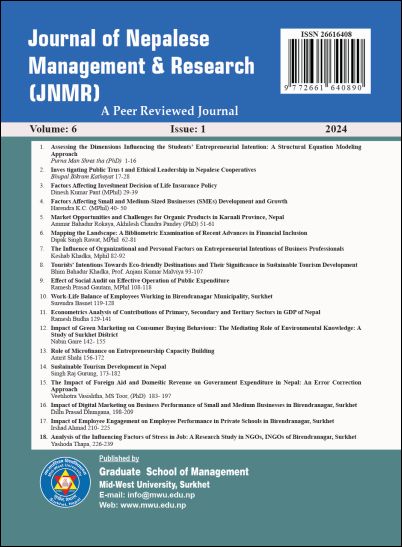Sustainable Tourism Development in Nepal
DOI:
https://doi.org/10.3126/jnmr.v6i1.72095Keywords:
Development, , Empowerment, Sustainability, TourismAbstract
This study examines the present initiatives being undertaken in Nepal to promote sustainable tourism. The long-term positive impacts of tourism on the environment, society, and economy are to be optimized through management strategies that align with sustainable tourism development. Its main objective is to protect and enhance local communities to maintain the environment and cultural heritage. Tourism is a broad term that includes a variety of subjects, things, and aspects related to social, economic, and environmental activities (Perles & Ivars, 2018). Sustainability is a fashionable trend in creation and operation, even in the travel and tourism industry. Disagreement exists about the many interpretations of sustainability and its applicability to the travel industry. This raises the question of whether tourism can be included in the definition of sustainable development. Because of limited resources and rising environmental consciousness, this study emphasizes the importance of sustainable tourist development for the benefit of coming generations. This article presents sustainable tourism's concept, definition, and historical background. In addition, the author critically assesses Poland's sustainable tourism growth, highlighting the need for reform in the present system. Presenting the socio-cultural, environmental, and economic aspects influencing sustainable tourism is the next task following the goals.




